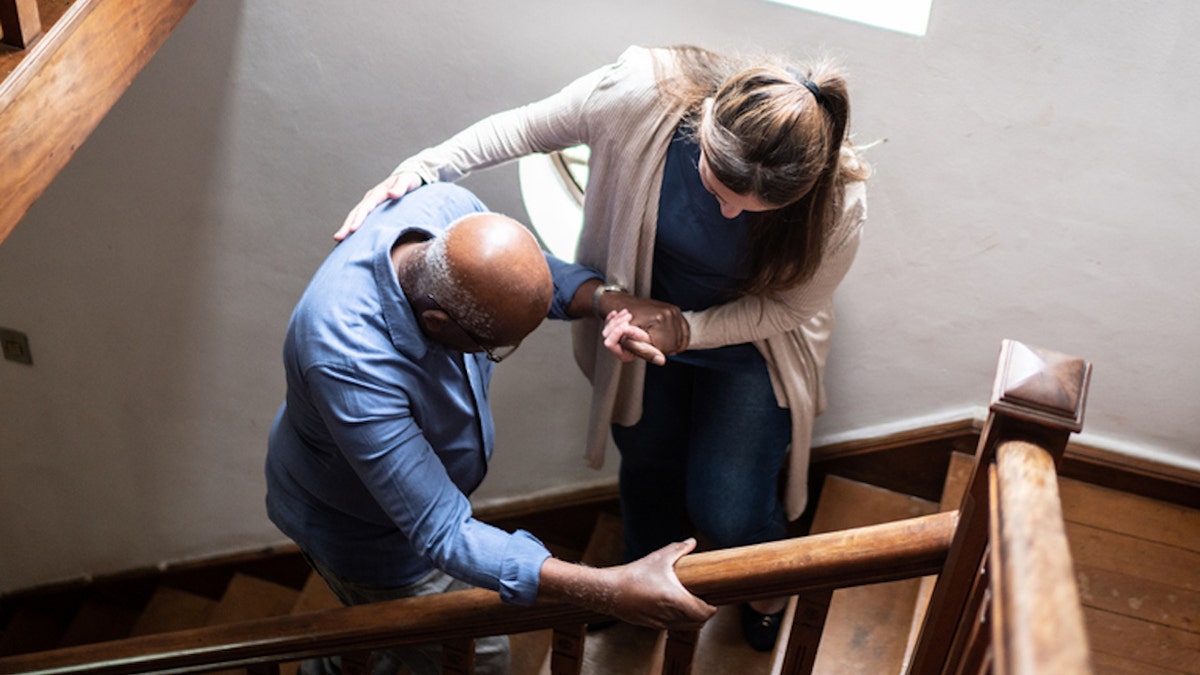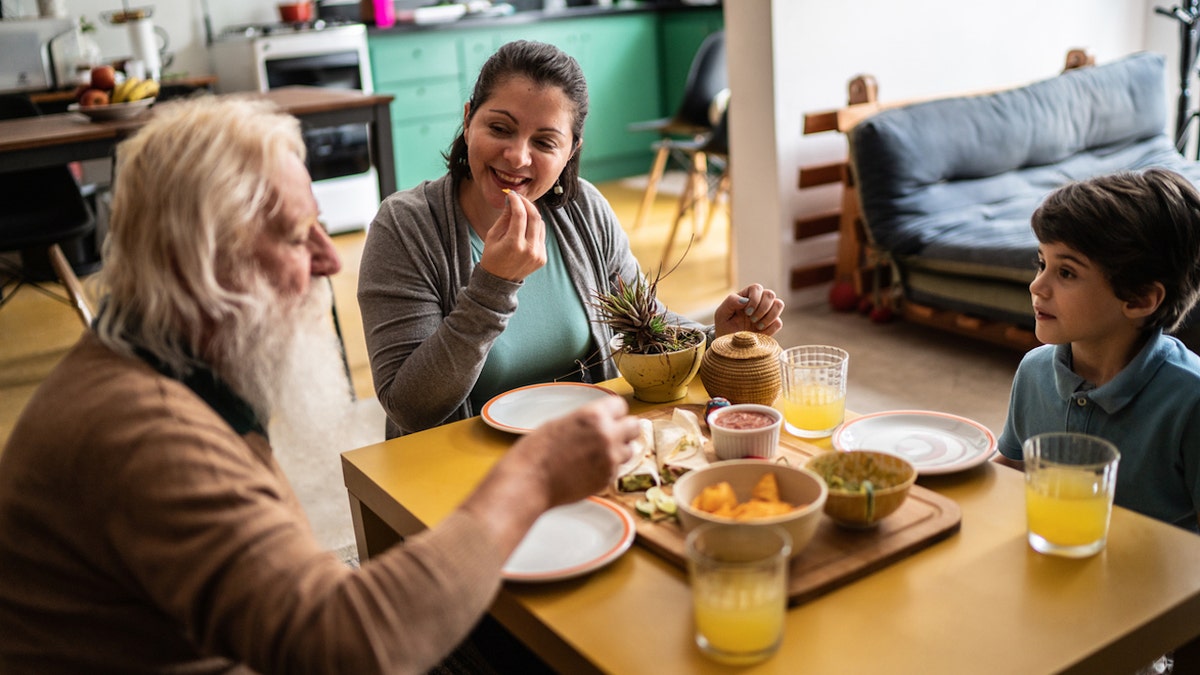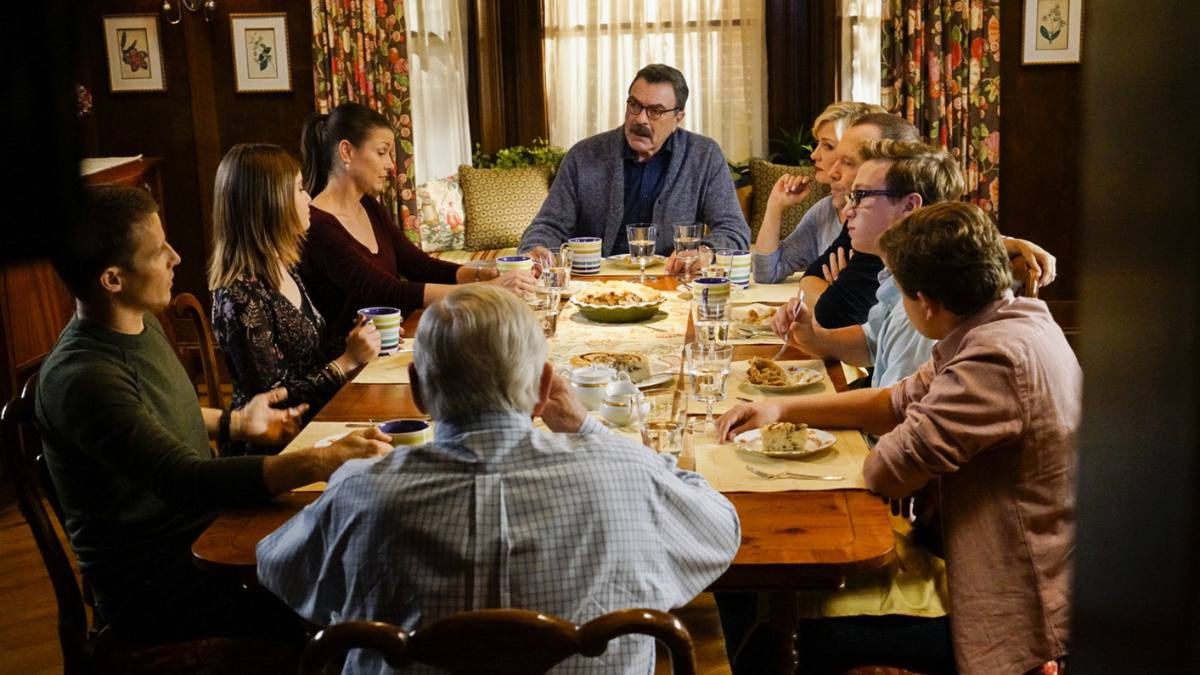Health
Why Do Dogs Put Their Paw on You? Canine Experts Explain What Your Pup May be Communicating

Sign Up
Create a free account to access exclusive content, play games, solve puzzles, test your pop-culture knowledge and receive special offers.
Already have an account? Login
Forgot your password?
Get back to the Sign In
Use left and right arrow keys to navigate between menu items.
Use escape to exit the menu.

Health
Florida’s Abortion Ban Will Reach Well Beyond Florida

August 2021
Miles to nearest clinic offering abortions after 6 weeks
Source: Caitlin Myers, Middlebury College
As of Wednesday, Florida has banned abortion after six weeks of pregnancy. It will have far-reaching effects.
In 2021, abortion was legal in every state, and the average American woman lived less than 25 miles from a clinic.
But after the Supreme Court overturned Roe v. Wade, some states banned all or most abortions, including many in the South.
Florida, North Carolina and Virginia were the only states in the South offering abortion after six weeks of pregnancy. For 6.4 million women, the nearest clinic was in Florida.
Now, that option is gone. Women in several states will need to travel hundreds of miles farther to reach a clinic.
It is the biggest change to abortion access since the period immediately after the reversal of Roe v. Wade in 2022.
“This is a seismic event for everyone in the ecosystem,” said Jenny Black, the chief executive of Planned Parenthood South Atlantic, which operates in North Carolina, South Carolina, Virginia and West Virginia. “It is impossible to overstate the impact of this ban on abortion access in the whole Southeast, probably all up the Eastern Seaboard.”
Florida, unlike much of the South, has long had many abortion clinics — more than 50, spread throughout the state. The average Florida woman lives less than 20 miles from one. Last year, clinics in Florida provided around 86,000 abortions, behind only California, New York and Illinois, according to estimates from the Guttmacher Institute.
Of those, more than 9,000 were for patients who came from other states, part of an influx after many Southern states banned or severely restricted abortion following the Supreme Court’s decision in Dobbs v. Jackson Women’s Health Organization.
With few exceptions, women across the South who are beyond six weeks of pregnancy — before many women know they’re pregnant — will now have to travel much farther to a clinic for an abortion. Also, for around a decade, Florida has required two appointments 24 hours apart to get an abortion, making it harder to receive one before the six-week mark. In other states, six-week bans have decreased abortions by about half.
“We’re hopeful that not only will the numbers in Florida for abortions take a deep nosedive, but also it does have national implications,” said Andrew Shirvell, the founder and executive director of Florida Voice for the Unborn, a group that lobbied the Legislature for the ban. Gov. Ron DeSantis, a Republican, has said he does not want the state to remain an “abortion tourism destination.”
Despite bans in 14 states, and restrictions in several others, the number of legal abortions nationwide is about the same as before Roe was overturned. Florida’s new ban could change that, researchers said — an illustration of how regional abortion access has become. Shutting down abortion access in one linchpin state, Florida, could reduce the number of abortions across the entire region, while in swaths of the rest of the country, abortion has remained accessible, and in some places has even become more so.
The maps above show how the distances to the nearest clinic have increased for women in the South who are more than six weeks pregnant, based on data from Caitlin Myers, a professor of economics at Middlebury College, who has been measuring the effects of abortion bans for years.
Women in Miami who are beyond six weeks will now need to travel more than 700 miles to reach the nearest clinics — in Charlotte, N.C., where state law requires two visits spread over three days. The current wait time there is a week or more to get an appointment, according to a recent survey of clinics led by Professor Myers. Otherwise, women would need to travel farther, to clinics in Virginia or Washington, D.C.
Driving distances would also increase by more than 100 miles for women in parts of Alabama, Georgia, Louisiana and Mississippi.
Percent of women in the South living less than 100 miles from a clinic offering abortions after 6 weeks Percent of women in the South living more than 300 miles from a clinic offering abortions after 6 weeks
Includes Alabama, Arkansas, Florida, Georgia, Louisiana, Mississippi, Oklahoma, Tennessee, Texas and Virginia. Measurements are for women of reproductive age. Source: Caitlin Myers, Middlebury College
“This is going to be the biggest change to abortion access since Dobbs, and the impact is clear: More people are going to have to travel further distances if they have the financial resources to do so, and many people will be forced to remain pregnant,” said Stephanie Loraine Piñeiro, executive director of Florida Access Network, which helps women in Florida pay for abortions and travel to clinics.
Clinic operators in North Carolina and Virginia say they are trying to expand capacity, but are already struggling to meet demand. Several clinics in those states are already reporting waits of two weeks for appointments, according to Professor Myers’s survey and interviews with clinic staffers.
Decades of research show that, as driving distances to abortion clinics increase, fewer women obtain abortions. The typical seeker of an abortion is poor, and often struggles to arrange transportation, time off from work, housing and child care to travel long distances.
Driving Distances Now
Miles to nearest clinic offering abortions after 6 weeks
Source: Caitlin Myers, Middlebury College
Yet there is uncertainty about the precise long-term effects of the ban. The same day the Florida Supreme Court allowed the six-week limit to go into effect, it also allowed a constitutional amendment on abortion to appear on the November ballot. If the amendment earns the support of 60 percent of voters, it will reverse the ban and protect abortion rights until about 24 weeks.
And in recent months, more women have been ordering abortion pills through telemedicine. This includes women in states with bans, who order from clinicians in states with laws that shield them from out-of-state prosecution.
Such abortions could become more common in the South. But some women are unaware of the option or uncomfortable managing an abortion without a nearby medical provider. Others are too far along in their pregnancies for the option — abortion pills are recommended by the Food and Drug Administration only during the first 10 weeks of pregnancy.
As a result, telemedicine is unlikely to replace all the abortions currently occurring in Florida. “I don’t think it means that everybody just perfectly substitutes it for traveling to a brick and mortar facility and seeing a provider in person,” Professor Myers said.
Health
When a parent must care for a parent: How to avoid caregiving burnout, according to experts

For members of the so-called “sandwich generation,” doing double-duty caregiving can take a toll.
Serving as a caregiver for a parent with dementia while also caring for kids and maintaining social and work relationships can come with physical, mental and emotional challenges, several experts expressed to Fox News Digital.
It can be especially difficult dealing with the role reversal, experts say.
CAREGIVING FOR A SPOUSE DURING GOOD TIMES AND BAD: ONE MILITARY MAN’S INCREDIBLE STORY
“The role of a parent is someone to look up to, respect and listen to,” Dr. Nancy Frye, PhD, a professor of psychology at Long Island University Post Campus in Brookville, New York, told Fox News Digital.
When a parent is in cognitive decline, questions arise about how to step out of traditional parent-child roles, she said, with “no clear norms or guidelines.”
For members of the so-called “sandwich generation,” doing double-duty caregiving can take a toll, experts say. (iStock)
“People have lived their lives looking up to their parents, turning to them for advice, and respecting their privacy and autonomy,” Frye continued.
“Now, they find themselves poking around in their parents’ affairs and wondering when to start making decisions for them.”
Stress of the ‘sandwich generation’
“Sandwich generation” caregivers — those who are tasked with taking care of multiple generations, such as parents and children, simultaneously — reported significantly higher levels of personal burnout compared to those who care solely for children, according to a 2023 study published in the International Journal of Aging & Human Development.
OLDER ADULT WOMEN CAREGIVERS HAVE LOWER DEATH RATES THAN NON-CAREGIVERS, STUDY FINDS: ‘A SENSE OF PURPOSE’
One middle-aged caregiver from Long Island, New York, who asked to withhold her name, told Fox News Digital she can barely find time to take a shower when taking care of her mother with dementia.
“How can I find time to go for a walk or coffee with friends when I am afraid she will wander or fall?” she asked.

Those who are tasked with caring for members of multiple generations reported significantly higher levels of personal burnout compared to those who care solely for children. (iStock)
To avoid caregiver burnout when taking care of a parent who is dealing with an illness such as dementia, health experts said it is important to carve out time for yourself.
“Caring for a person with dementia can be very stressful,” Frye said. “In order to take care of somebody else, you need to take care of yourself. It is OK to take a break.”
TEENAGER IS PRIMARY CAREGIVER FOR NEW MEXICO MOM WITH MS: ‘WE’RE A TEAM’
Dr. Marc L. Gordon, chief of neurology at Zucker Hillside Hospital Northwell Health on Long Island, New York, said caregivers should not hesitate to rely on others.
“It is important to find time for respite, and to ask for help rather than trying to do it all by yourself.”
He added, “Just like they tell you on an airplane, in case of an emergency, you should put on your own oxygen mask before attempting to assist others.”
“How can I find time to go for a walk or coffee with friends when I am afraid she will wander or fall?”
Darci Henry, a certified dementia practitioner and licensed nursing home administrator with Trualta — a Canadian company that provides online support and education for caregivers — said caregivers experience a range of emotions, all which are valid.
Henry emphasized to Fox News Digital the importance of delegating responsibilities to other family members and outsourcing tasks.

There are approximately 53 million caregivers in the U.S. as of 2020, a jump from 43.5 million in 2015, according to the Centers for Disease Control and Prevention (CDC). (iStock)
This may mean using community resources, such as meal prep, grocery delivery and laundry services.
“Reaching out and getting that extra layer of support is really important for your own preservation,” Henry said.
“Taking time for self-care is not selfish. It’s necessary.”
BE WELL: TAKE SMART STEPS TO REDUCE THE STRESS OF CAREGIVING
Even for those who cannot leave the house, Henry suggested taking “micro moments.”
“It can be something as small as taking a few deep breaths, doing some stretching, standing outside on your porch or just enjoying a cup of coffee,” she said.

When it comes to speaking with children about their grandparent’s condition, an expert said knowledge is power. (iStock)
It is also important to carve out time for family relationships and daily check-ins with spouses or partners, according to Henry.
That could include going for a walk after dinner, having regular family meetings and discussing the division of responsibilities.
Navigating difficult discussions
“If there are underlying issues in the family, you’re definitely going to see them come up once the caregiving role starts,” Henry said.
People should seek professional help if the strain of caregiving is affecting the relationship, she advised.
“Many families have someone from the outside come in and mediate the meetings.”
CAREGIVER FATIGUE IN AMERICA RISING AT UNPRECEDENTED RATE: REPORTS
Having an outside perspective can help “provide a different lens” for the conversation and make sure everyone is heard, Henry noted.
While communicating, she said it’s key to be respectful and understand limitations and expectations.

“Try to take things as they come, moment by moment,” said one expert. “Focus on a parent having a good or a bad hour or day, as opposed to the parent improving or declining quickly.” (iStock)
When it comes to speaking with children about their grandparent’s condition, Henry said knowledge is power.
“The more you can educate the teenager or young adult about what is happening, the more empathy they may have about the situation.”
“If there are underlying issues in the family, you’re definitely going to see them come up once the caregiving role starts.”
To help deal with the mood swings often associated with dementia, Henry suggested adhering to a stable routine as much as possible and developing strategies to identify and prevent triggers for certain behaviors.
“Educating yourself on what is happening in that person’s brain is really important, because that will help you understand that they are not giving you a hard time, they’re having a hard time,” Henry said.
‘One day at a time’
It’s best to embrace a “one-day-at a time” mindset, Frye suggested.
“It’s tempting to take a parent’s state and behavior — whether it’s good or bad — as an indication of what’s to come,” she said.

To help deal with the mood swings that are often associated with dementia, an expert suggested adhering to a stable routine as much as possible and developing strategies to identify and prevent triggers. (iStock)
“Try to take things as they come, moment by moment. Focus on a parent having a good or a bad hour or day, as opposed to the parent improving or declining quickly,” Frye suggested.
Continuing to give a parent as much say and autonomy as possible can be helpful, she added — as long as it’s safe.
CLICK HERE TO SIGN UP FOR OUR HEALTH NEWSLETTER
“Decades ago, Ellen Langer did a study in which people in a nursing home were given a plant and told either that they needed to care for it, or that the staff would care for it,” Frye said.
“Those who were tasked with caring for their own plants lived longer.”
There are approximately 53 million caregivers in the U.S. as of 2020.
That’s a jump from 43.5 million in 2015, according to the Centers for Disease Control and Prevention.
For more Health articles, visit www.foxnews.com/health.
Health
As 'Blue Bloods' Says Farewell, Take a Final Look at the Show's Beloved Cast

Sign Up
Create a free account to access exclusive content, play games, solve puzzles, test your pop-culture knowledge and receive special offers.
Already have an account? Login
Forgot your password?
Get back to the Sign In
Use left and right arrow keys to navigate between menu items.
Use escape to exit the menu.
-

 Education1 week ago
Education1 week agoVideo: Dozens of Yale Students Arrested as Campus Protests Spread
-

 World1 week ago
World1 week agoEU sanctions extremist Israeli settlers over violence in the West Bank
-

 Politics1 week ago
Politics1 week agoDemocrats hold major 2024 advantage as House Republicans face further chaos, division
-

 Politics1 week ago
Politics1 week agoFetterman hammers 'a–hole' anti-Israel protesters, slams own party for response to Iranian attack: 'Crazy'
-

 World1 week ago
World1 week agoPeriod poverty still a problem within the EU despite tax breaks
-

 Politics1 week ago
Politics1 week agoA battle over 100 words: Judge tentatively siding with California AG over students' gender identification
-

 Movie Reviews1 week ago
Movie Reviews1 week agoShort Film Review: Wooden Toilet (2023) by Zuni Rinpoche
-

 News1 week ago
News1 week agoUniversal Studios Tram Crashes, 15 Injured, 1 Critical













